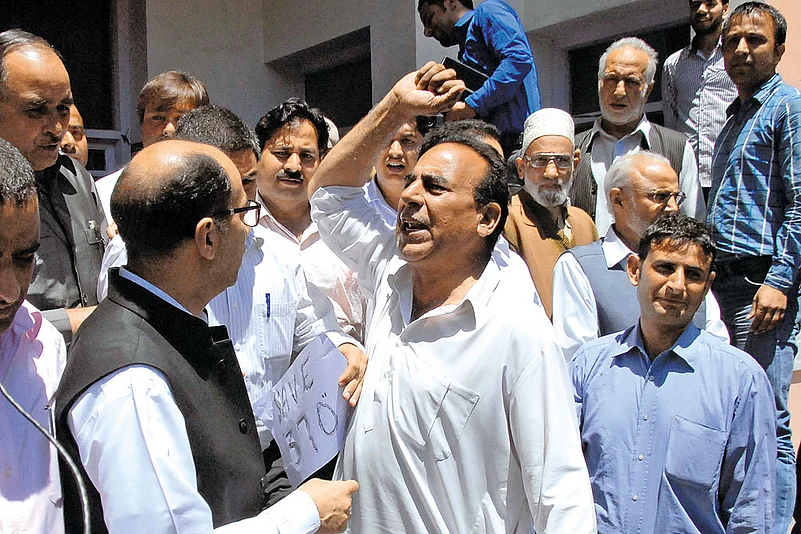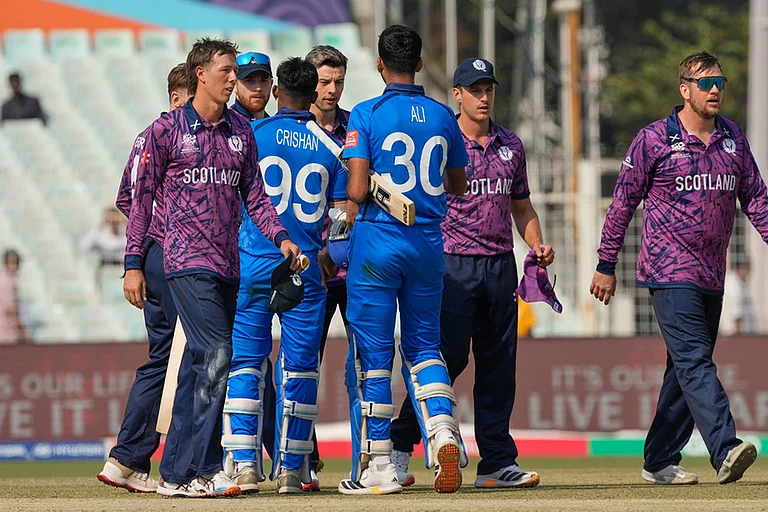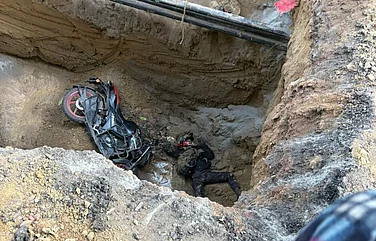
The Man In The Muddle
Dr Jitender Singh Rana, a first-timer in the Lok Sabha from Udhampur (Jammu) and an MOS in the PMO, has a citation from All India Radio describing him as a “high drama artist”. Professionally, he is a diabetologist and endocrinologist and was a professor at the medical college in Jammu. He rose to prominence during the Amarnath land row in 2008 as the spokesman for Shri Amarnath Yatra Sangharsh Samiti and made appearances on TV. He won the LS election defeating Ghulam Nabi Azad. Ironically, his brother Devender Singh Rana, is a senior National Conference leader and political advisor to chief minister Omar Abdullah —
***
“I wish this lunacy translates into reality,” says a college teacher here about the controversy stirred up by Jitender Singh Rana, a Union minister of state in the PMO, over Article 370, granting special status to J&K. “It will be the final nail in the coffin and will settle the Kashmir dispute once and for all.” Within hours of Narendra Modi’s cabinet being sworn in, Rana had said the process of repealing Article 370 had begun. He later claimed he had been misquoted, but held that the special status granted to Jammu & Kashmir had “done more harm than good”.
There’s nothing unexpected about a BJP leader talking thus. What has caused consternation is the statement coming within minutes of the minister taking office. United in dread by the statement are Kashmiri politicians who are pro-India and swear by Kashmir’s accession to India.
Chief minister Omar Abdullah saw Rana’s statement as inpugning his chair. He asked the Modi government to come clean on the stakeholders it was talking to. On Twitter, Omar said: “Mark my words and save this tweet—long after Modi Government is a distant memory either J&K won’t be part of India or Article 370 will still exist.” The National Conference warned that talk of abrogating the article could cause Kashmir to erupt. Senior NC leader Ali Mohammed Sagar says the party is ready to fight it out—working with the opposition parties, if necessary.
Rana may just have shot off his mouth, but it’s a major faux pas, considering he’s in the all-important PMO, from where policy emanates. Mehbooba Mufti, president of the opposition PDP, says the remarks have the potential to trigger another partition. “The PM, on the one hand, was trying to connect with neighbours and was talking to Pakistani prime minister Nawaz Sharif,” she says. “But his minister has made a statement that can divide J&K on communal lines.” Given a chance to decide, Kashmiris would opt for freedom from India. “Is the BJP ready to offer people a chance to decide?” she asks. “So the BJP should discuss Article 370 and figure out ways to strengthen it.”
Separatists, however, find their struggle vindicated. “We’ve been saying all along that Article 370 has no relevance in Kashmir,” says moderate Hurriyat chairman Mirwaiz Umer Farooq. “It’s a facade. It has been buried by the Indian government long ago.” Hardline Hurriyat leader Syed Ali Geelani, too, feels the Article is of no value “in the presence of tens of thousands of Indian troops in Kashmir”. “Its importance and credibility was destroyed a long time ago. Now it’s just a word in official papers to fool people,” he says.
***

| “Article 370 protects only the Muslim majority character of the Valley. As an exile, I want it revoked.” Dr Agnishekhar Convenor, Panun Kashmir |
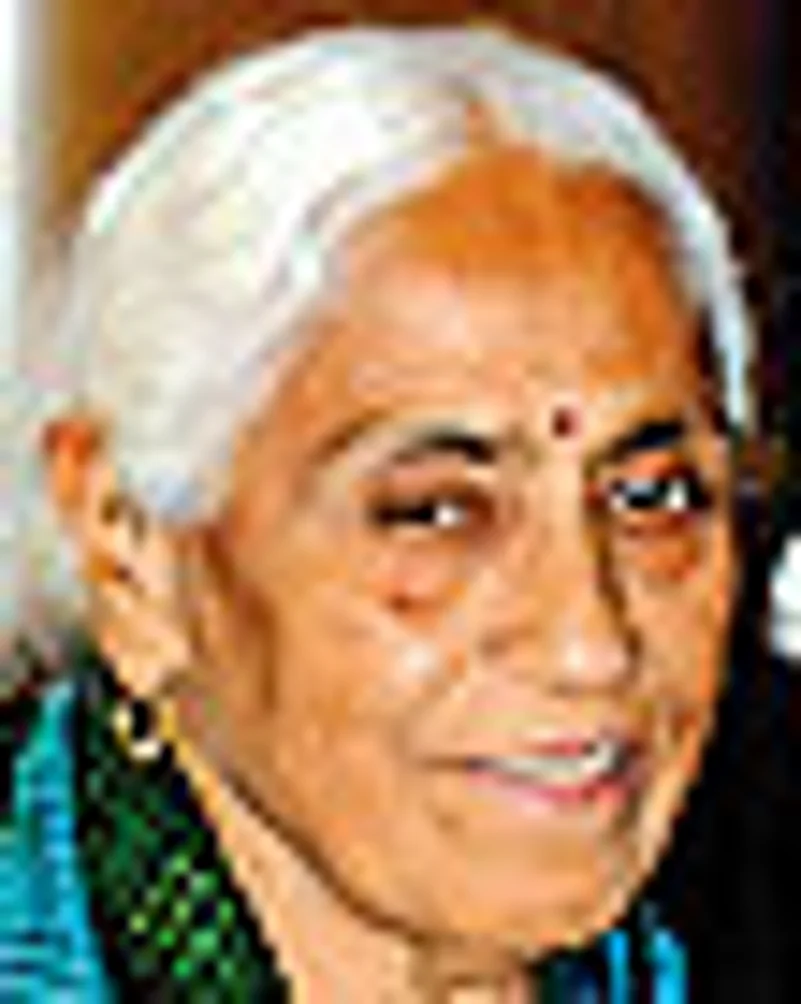
| “The provision needs rethinking. Though it grants some exclusive rights, it’s a stumbling block to development.” Prof Ved Ghai, Padmashri awardee | ||
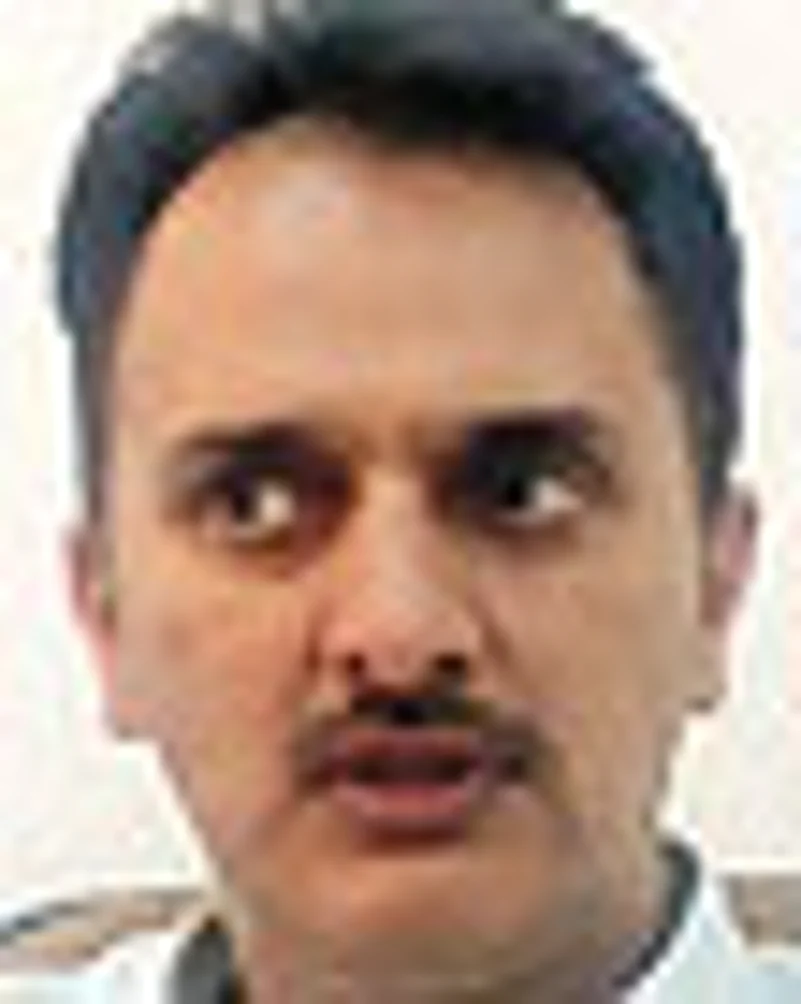
| “This benign provision has been abused by governments to thwart development in Jammu and Ladakh regions.” Prof Arvind Jasrotia, Law school, Jammu Univ |
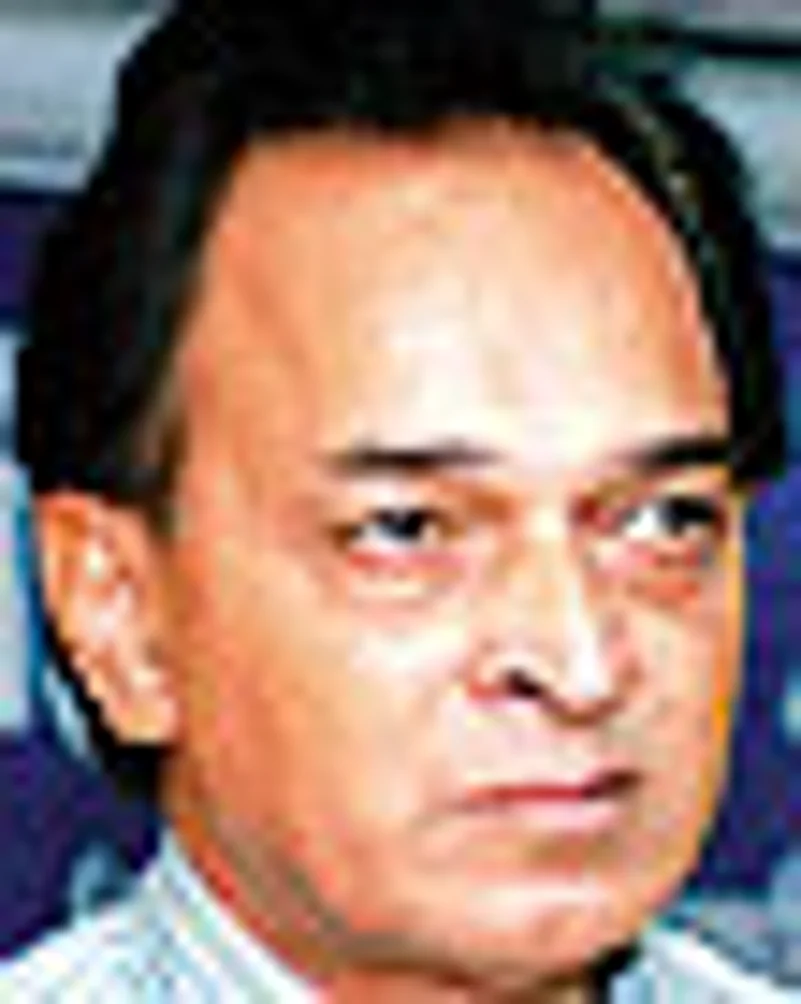
| “Outsiders with clout have amassed property and do business in the state. But ordinary people have suffered.” Mohan Singh, President, Duggar Manch |
***
Many Kashmiris share that view, lamenting how Article 370 has been eroded over time: earlier, people of Kashmir were not Indian citizens; now they are. Earlier, Indians needed permits to visit J&K and goods had to pass through customs. No longer. Haseeb A. Drabu, economist and former advisor to the J&K government, wrote in the Greater Kashmir: “Article 370 is now nothing more than a husk; the seed has been long taken out.” He noted how various constitutional orders by the President of India had superceded the J&K Constitution. “Of the 395 articles in the J&K Constitution, 260 have been overridden by articles of the Indian constitution. The rest are identical to those in the Indian constitution.” (see page 54)
Some analysts say the BJP is only testing waters, knowing the Catch-22 that Article 370 is. “If they revoke it, it will push Kashmiris away,” says Abir Bazaz, a US-based Kashmiri scholar. “If they don’t, they’ll appear to have abandoned the memories of the putative martyrdom of Syama Prasad Mookerjee.” He says the RSS, however, will ensure that Article 370 remains on the political agenda.
Legal experts like Sheikh Showkat Hussain, a law professor, say revoking Article 370 will open a Pandora’s box, leading to Kashmir’s separation from India. “It’s there in the BJP’s manifesto only for political capital,” he says. “Besides, Article 370 can’t be revoked unilaterally.” The J&K assembly will have to be dissolved, a new constituent assembly will have to be convened, and it will have to recommend revocation of Article 370. Hussain points to another complication: “It won’t be mandatory on the House to ratify the decision of New Delhi. Instead, the House will have absolute powers to nullify Kashmir’s accession to India, ratified by it 66 years ago.”
Can any government in New Delhi afford that? “Never,” says Ghulam Rasool Kar, one of the two surviving members of the 75-member Constituent Assembly of J&K. “Abrogation of Article 370 isn’t possible in my life; it isn’t possible in your life.” Amitabh Mattoo, director of the Australia-India Institute, University of Melbourne, says Article 370 is a basic feature of the relationship between the state and the Centre and about providing space to the people of a state who felt deeply vulnerable about their identity and insecure about their future.
But the broad feeling is that the BJP will keep up the chant on Article 370, as it will on the Ram temple and a common civil code, but the issues themselves will remain on the backburner. As J&K Congress president Saifuddin Soz puts it, “if these were achievable goals, Vajpayee would have done it. The agenda will always remain a dream.” It remains to be seen if the BJP will be tempted by the unthinkable.
By Showkat A. Motta in Srinagar






